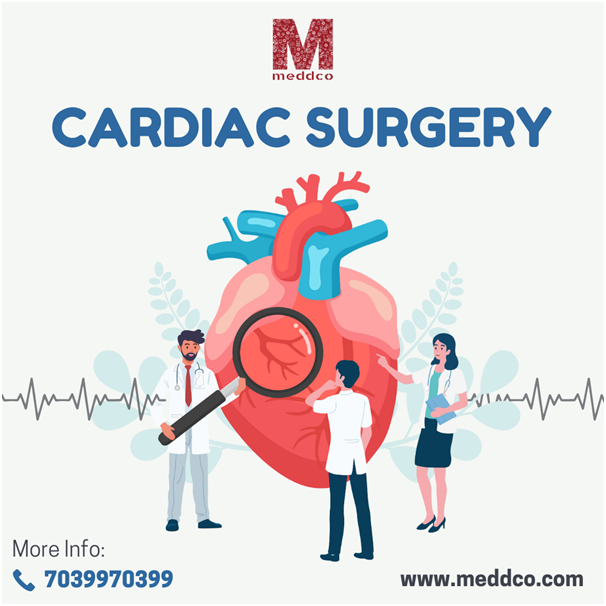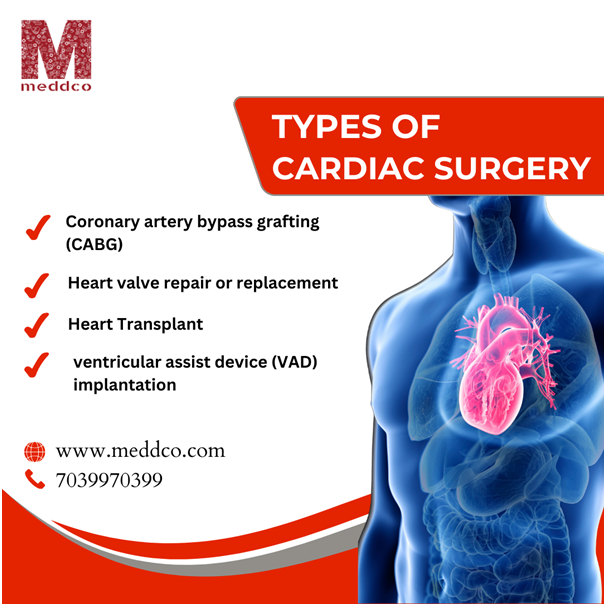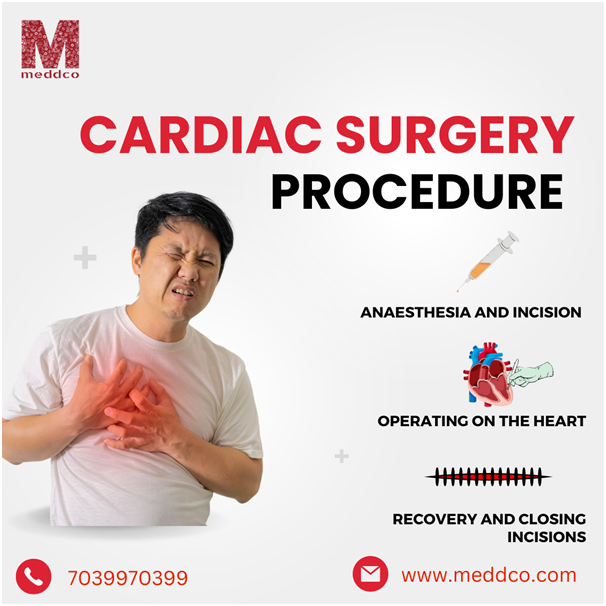Cardiac Surgery: Saving Lives with Precision and Care

Introduction
Cardiac surgery is a specialized medical procedure aimed at treating various heart conditions. It involves intricate surgical interventions to repair or replace damaged heart structures. In this article, we will delve into the world of cardiac surgery, exploring its different aspects, benefits, and post-operative care.
Understanding Cardiac Surgery
What is Cardiac Surgery?
Cardiac surgery, also known as heart surgery, is a medical procedure performed on the heart to treat conditions such as coronary artery disease, heart valve problems, congenital heart defects, and heart failure. It is usually recommended when other treatments like medication or lifestyle changes prove insufficient.

Types of Cardiac Surgery
Cardiac surgery encompasses several procedures, including coronary artery bypass grafting (CABG), heart valve repair or replacement, heart transplant, and ventricular assist device (VAD) implantation. Each type of surgery serves a specific purpose in addressing heart-related issues.
Preparing for Cardiac Surgery
Medical Evaluation and Tests
Before cardiac surgery, the patient undergoes a comprehensive medical evaluation and various tests to assess their overall health and identify any potential risks. These evaluations help the medical team tailor the surgical approach to suit the individual’s needs.
Lifestyle Changes
In preparation for cardiac surgery, adopting a healthy lifestyle is essential. Quitting smoking, maintaining a balanced diet, and engaging in regular exercise can improve the chances of a successful surgery and faster recovery.
Mental Preparation
Emotional and mental readiness are crucial before undergoing cardiac surgery. Coping with stress and anxiety positively can aid in the recovery process and enhance overall well-being.
The Cardiac Surgery Procedure
Anaesthesia and Incision
During cardiac surgery, the patient is given anaesthesia to ensure they remain unconscious and pain-free throughout the procedure. The surgeon then makes an incision in the chest to access the heart.
Operating on the Heart
The surgical team performs the necessary interventions, such as bypassing blocked arteries or repairing/replacing damaged heart valves. The heart-lung machine may be used to maintain blood circulation during the surgery.

Recovery and Closing Incisions
After the surgical procedure is complete, the surgeon closes the incisions with sutures or staples. The patient is then moved to the recovery room for postoperative care.
Recovery and Rehabilitation
Immediate Postoperative Care
After cardiac surgery, the patient is closely monitored in the intensive care unit (ICU). The medical team ensures that the patient’s vital signs are stable and manages pain and discomfort.
Hospital Stay and Follow-up
The length of the hospital stay varies depending on the type of surgery and the patient’s condition. Regular follow-up visits with the medical team are essential to monitor the recovery progress.
Cardiac Rehabilitation
Cardiac rehabilitation programs help patients regain strength and improve cardiovascular health. These programs include exercise, education on heart-healthy habits, and emotional support.
Risks and Complications
Common Risks
Like any surgical procedure, cardiac surgery carries some risks, such as infection, bleeding, or adverse reactions to anaesthesia. However, these risks are generally low, and the benefits of the surgery often outweigh them.
Serious Complications
In some cases, serious complications may arise, including stroke, heart attack, or organ damage. These instances are rare and are usually managed by the experienced medical team.
Advances in Cardiac Surgery
Minimally Invasive Techniques
Advancements in medical technology have led to the development of minimally invasive cardiac surgery, which involves smaller incisions, reduced scarring, and shorter recovery periods.
Robotic Cardiac Surgery
Robotic-assisted cardiac surgery allows surgeons to perform complex procedures with enhanced precision. This technology offers greater control and flexibility during surgery.
Cardiac Surgery for Children
Congenital Heart Defects
Some children are born with congenital heart defects that require surgical intervention to correct the abnormalities and improve heart function.
Paediatric Cardiac Surgery
Paediatric cardiac surgeons specialize in performing heart surgeries on infants, children, and teenagers. These procedures demand a specialized approach and expertise.
Lifestyle after Cardiac Surgery
Diet and Nutrition
Following cardiac surgery, adopting a heart-healthy diet can significantly impact recovery and overall heart health. A balanced diet rich in fruits, vegetables, and whole grains is essential.
Physical Activity
Engaging in regular physical activity is crucial for maintaining heart health after surgery. Gradual and guided exercise routines are recommended during the recovery period.
Managing Stress
Managing stress and anxiety is beneficial for the heart’s well-being. Relaxation techniques, meditation, and seeking emotional support are effective ways to cope with stress.
Emotional Support and Coping
Family and Friends
Having a strong support system of family and friends can positively influence a patient’s emotional recovery and overall outlook on life after cardiac surgery.
Support Groups
Joining support groups comprising individuals who have undergone cardiac surgery can provide valuable insights, encouragement, and emotional support.
Financial Considerations
Health Insurance
Understanding health insurance coverage and planning for potential medical expenses associated with cardiac surgery is crucial for financial preparedness.
Medical Expenses
Cardiac surgery costs can vary depending on the type of procedure and the hospital. Being aware of the potential expenses can help patients make informed decisions.
FAQs
-
Is cardiac surgery risky?
Yes, like any surgery, cardiac surgery carries some risks, but with advancements in medical technology and experienced surgical teams, the risks are minimized.
-
How long does it take to recover from cardiac surgery?
Recovery periods vary depending on the individual and the type of surgery. Generally, it takes a few weeks to several months to fully recover.
-
Can children undergo cardiac surgery?
Yes, children with congenital heart defects or other heart conditions may require cardiac surgery to improve heart function and overall health.
-
Will I need to make lifestyle changes after cardiac surgery?
Yes, adopting a heart-healthy lifestyle, including a balanced diet, regular exercise, and stress management, is essential for a successful recovery and long-term well-being.
-
Can I lead a normal life after cardiac surgery?
Yes, many patients can lead a normal and fulfilling life after cardiac surgery, especially when following their doctor’s advice and making positive lifestyle changes.
In conclusion, cardiac surgery is a life-saving procedure that can significantly improve the quality of life for individuals with various heart conditions. From understanding the different types of cardiac surgeries to embracing lifestyle changes and seeking emotional support, a holistic approach is essential for successful surgery and recovery. With ongoing advancements in medical technology, cardiac surgery continues to offer hope and healing to patients of all ages, ensuring they can lead fulfilling lives with healthier hearts.
Meddco.com is a leading healthcare platform connecting patients with trusted healthcare providers, offering transparent pricing, and facilitating hassle-free medical appointments. With a wide network of hospitals and doctors, Meddco.com empowers patients to make informed decisions and access quality healthcare services effortlessly.
Cardiac surgery price packages are available on our website. Visit our website to find out more about it.






